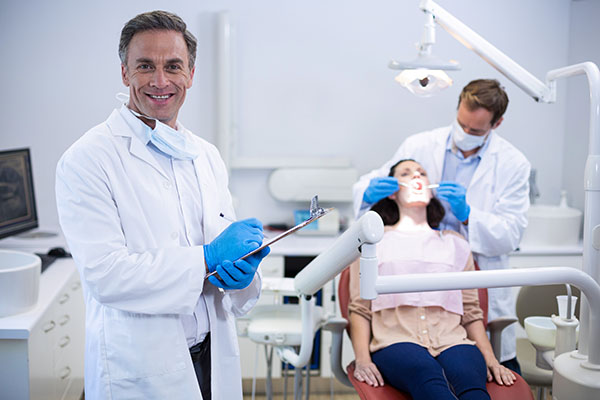General Dentistry: Common Treatments for Dry Mouth
 Dry mouth can be connected to many different health-related issues, but did you know it can also create long-term problems in general dentistry? Dry mouth, also known as xerostomia, can be triggered by both temporary and permanent factors.
Dry mouth can be connected to many different health-related issues, but did you know it can also create long-term problems in general dentistry? Dry mouth, also known as xerostomia, can be triggered by both temporary and permanent factors.
Whether it is linked to medication, age, radiation therapy, or a condition with your salivary glands, it can have a negative impact on your mouth. So, what does this mean in general dentistry? Studies indicate dry mouth leads to an increased risk for tooth decay, more frequent indigestion, and an increased risk of developing gum disease.
How general dentistry addresses dry mouth
Let us take a look at some of the ways dry mouth can be treated:
- Drink more water: Treating dry mouth can be as simple as drinking a glass of water or two. Dehydration is a common cause of temporary dry mouth. Drinking more water is a common remedy for dry mouth, and it provides immediate relief. Water also helps to clean the mouth, washing away bacteria and the acids made by them
- Avoid alcohol: Avoiding mouthwashes that contain alcohol can help to alleviate dry mouth. Alcohol dries up the mouth and makes things worse for people who suffer from xerostomia. Alcohol is sometimes added to mouth rinses to help kill bacteria in the mouth. People with dry mouth should use mouth rinses that contain no alcohol
- Use sugar-free gum: Chewing sugar-free gum or candy stimulates saliva production in the mouth, preventing the mouth from drying out
- Stop smoking: Smoking tobacco products will dry out the mouth, and it increases a person’s risk of developing tooth decay
- Use a mouth rinse that promotes saliva production: Mouthrinses that contain ingredients like Biotene and xylitol promote saliva production, helping to keep the mouth moisturized
- Breath with your nose: Breathing with the mouth dries it out, and it can lead to the poor development of bone structures in the face
- Get a humidifier: Using a humidifier at night can help to prevent dry mouth
- Use fluoride toothpaste: Fluoride will not prevent a person’s mouth from becoming dry, but it protects their teeth against tooth decay. A dry mouth increases a person’s risk of developing tooth decay, and that risk can be reduced by using products that contain fluoride
- Avoid sugar: Oral bacteria convert sugars in your mouth into acids that damage tooth structures. A dry mouth increases the risk of tooth decay since saliva serves as a mouth cleaner that removes bacteria and the acids they produce. Limiting your sugar intake starves oral bacteria of the fuel they need to make acids that cause tooth decay
- Stop taking medications that dry out the mouth: Some drugs leave the mouth dry, so patients should discuss any medication they take with a dentist to ensure it does not add to their problem. A dentist can also prescribe medication that promotes saliva production
Preventing dry mouth protects your teeth
Find yourself dealing with dry mouth often? Give us a call or visit our Colleyville clinic to explore treatment options.
Request an appointment or call Dental Studio Colleyville at 817-885-5188 for an appointment in our Colleyville office.
Recent Posts
Teeth cleanings are an integral part of general dentistry and are encouraged several times a year. Continue reading to learn more about the importance of keeping regular cleaning appointments. A common misconception is that visiting the dentist is only necessary when there is a noticeable concern with oral health. However, the best way to deal…
Dental crowns are one of the most commonly used restorations in general dentistry. These restorations provide restorative and cosmetic benefits to the tooth being covered with them. Some of the benefits of covering up a tooth with a dental crown include:The crown helps to keep what is left on the tooth intact, preventing it from…
When patients visit the general dentistry office, the goal is to keep their oral health excellent. The appointment may be nothing more than a professional dental cleaning and getting instructions on proper oral health so long as there are no oral issues. If dental problems are to be addressed, the dentist will recommend the appropriate…


